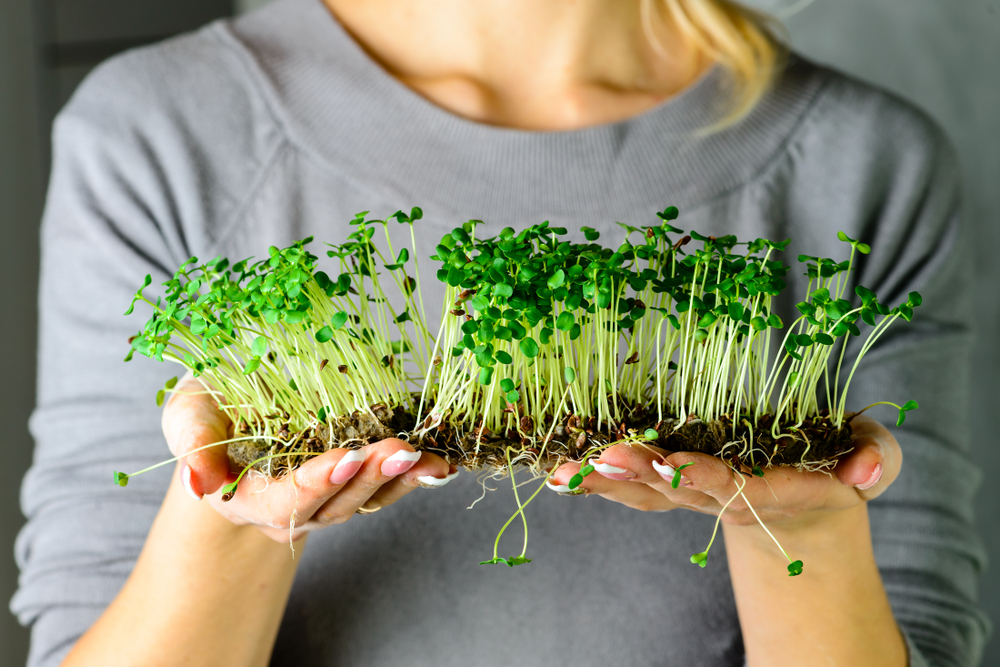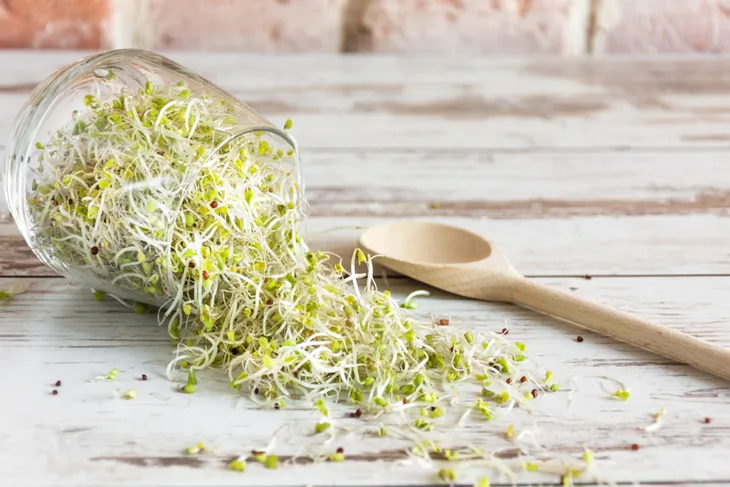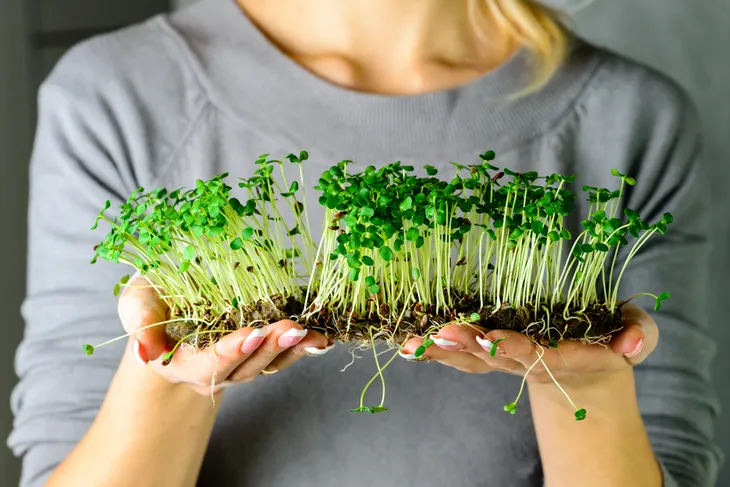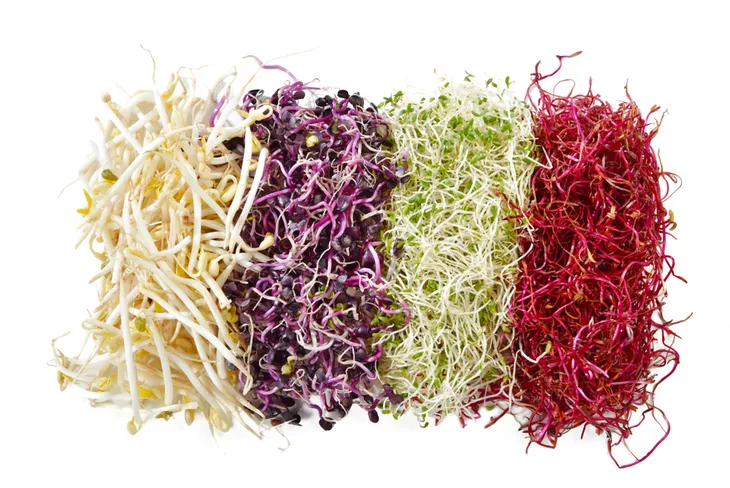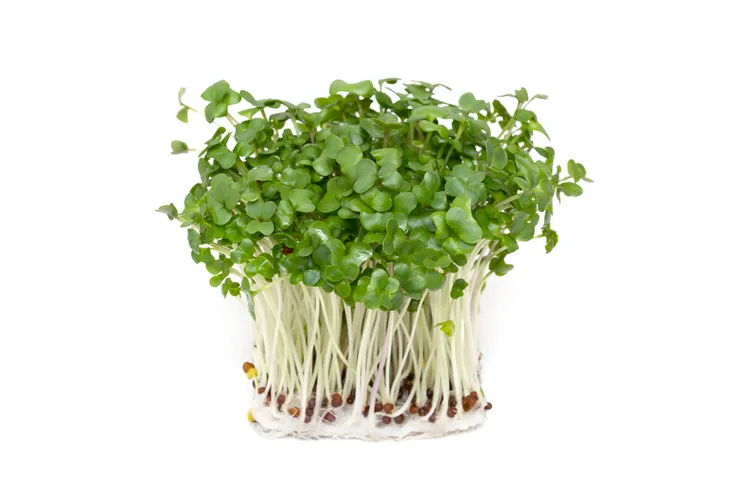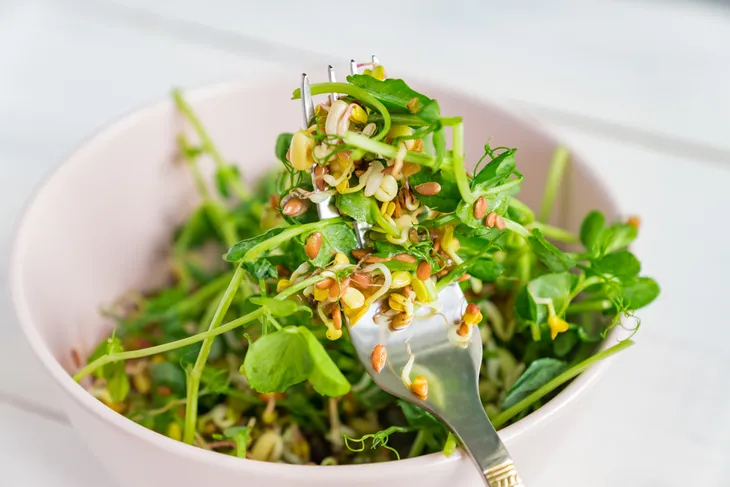With so many food recalls filling your produce bins at the grocery store, you’ve probably noticed recurring warnings on one product in particular—spouts! Are they really one of the most risky foods at the market?
Let’s explore the health benefits versus the dangers of buying and eating raw sprouts…
What are Sprouts?
Sprouts are the tiny tender shoots of germinated seeds—such as alfalfa, mung bean, broccoli, and pea that have just begun to grow. They are typically less than a week old. Lesser seen raw sprouts can be found in lentil, garbanzo, pumpkin, sunflower and other sprout varieties.
While raw sprouts offer a ton of nutritional, enzymatic, and digestive properties— the seemingly crunchy, juicy, and delicious veggie can be very dangerous due to how they are grown—in environments ideal for bacteria growth.
Are Sprouts Really Dangerous?
According to Mike Doyle, the Director of the Center for Food Safety at the University of Georgia, “Raw sprouts are considered among the most risky foods sold at retail.” This is because sprouts are grown in environments conducive to cultivating bacteria.
Since sprouts have just started to grow they are particularly vulnerable to all sorts of critters and bacteria. As the germ of each baby plant awaits water and warmth to germinate, the seeds soak in warm water and are (ideally) rinsed daily so they stay moist in a (preferably) warm and dark environment. If the seeds aren’t washed thoroughly, several times per day, they can quickly become contaminated and lead to foodborne illness (i.e., E. coli, Listeria and Salmonella).
Sprout Disasters
There have been several stories in the media of food borne illnesses traced back to sprouts. However, when it comes to several thousand people falling ill—2 reports stand out in particular.
In Japan back in 1996, radish sprouts caused 10-thousand people to fall seriously sick and become hospitalized with Salmonella illness, many of them children. Another foodborne E. coli illness from contaminated sprouts caused 4,000 people to fall ill in Germany in 2001. Tragically 53 died due to serious illness.
Do the Vitamins Outweigh the Risks?
Most people who consider themselves sprout-lovers reach for the nutrient packed, tiny greens for their impressive vitamin and mineral content. While the nutrition varies on different sprouts—most are considered rich sources of vitamin C and K.
Sprouts also contain an impressive amount of phyto-estrogens, which are compounds present in plant foods that are purported to reduce risk of cancer, heart disease and osteoporosis. Cornell University researchers claim that despite initial optimism, further studies are required to determine whether phytoestrogen-rich foods lower breast cancer risk.
The Final Verdict on Sprouts…
When it comes down to eating sprouts—pick up that carton with a note of caution. Many sprout lovers claim that eating a hamburger is just as dangerous—while others say the risk is lessened if you grow your own sprouts at home. In the end it’s all about vigilance and knowing the risk.
However, if you are at “high risk” for food poisoning—a child, senior, or individual with a weakened immune system—it’s wise to steer clear of any food that could contain potentially harmful levels of bacteria.
